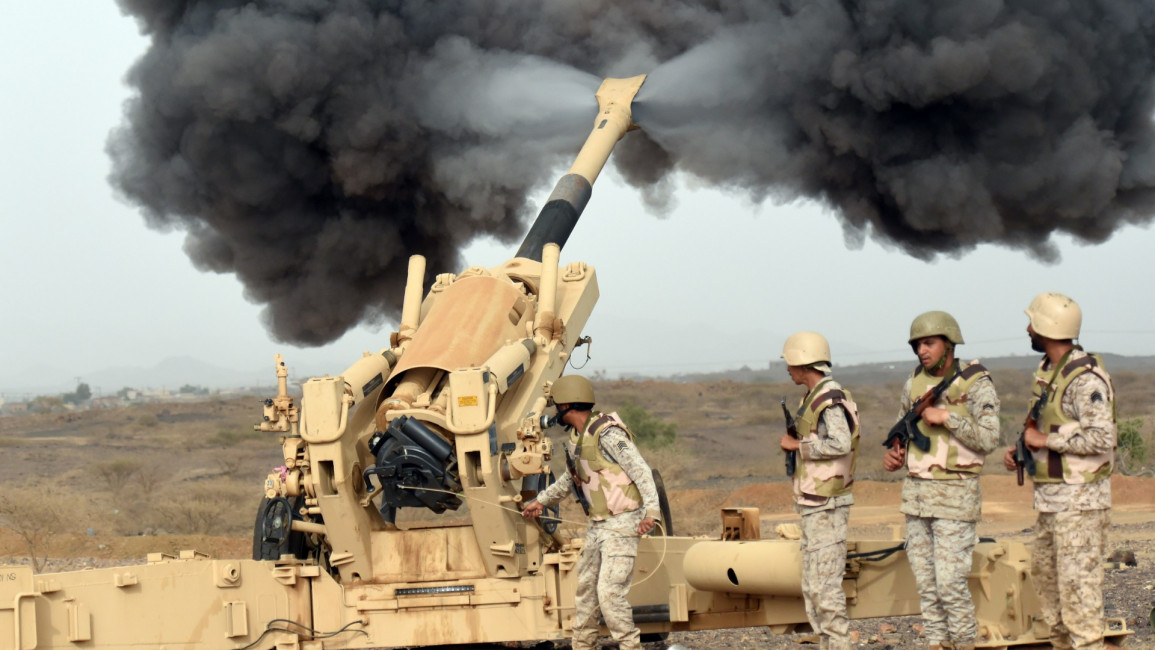Follow us on Facebook, Twitter and Instagram to stay connected
Amnesty demands release of four Yemeni journalists facing execution as coronavirus pandemic spreads
Amnesty demands release of four Yemeni journalists facing execution as coronavirus pandemic spreads
Ahead of World Press Freedom Day, Amnesty International is calling on Yemen's Houthi rebels to release journalists sentenced to death for 'spying', as Covid-19 continues to spread.
2 min read
Press freedom in Yemen is under threat as the conflict continues [Getty]
Amnesty International is calling on Houthi rebels to release four journalists facing possible execution in Yemen, amid a growing crackdown by the Houthis, who control the Yemeni capital Sana'a, on freedom of expression.
A Sana’a court sentenced four men – Akram al-Walidi, Abdelkhaleq Amran, Hareth Hamid and Tawfiq al-Mansouri – to death on trumped-up charges, including “spying for Saudi Arabia”, and “broadcasting rumors, fake news and statements in support of the enemy Saudi Arabia” solely for their work as journalists.
“It is outrageous these brave journalists remain at risk of death simply for telling the world the truth about the suffering in Yemen,” said Heba Morayef, Amnesty International’s Middle East and North Africa Regional Director.
“To mark World Press Freedom Day, the Houthi de facto authorities must immediately quash their death sentences, drop all pending charges and release all journalists imprisoned for their work.”
Read More: The death of journalism in Yemen's war
On 11 April 2020, the Houthis' "Specialised Criminal Court" in Sana’a sentenced the four journalists, who had been awaiting trial since 2015, to death.
They were part of a wider group of 10 journalists who were formally charged in December 2018 with a series of offences, including spying, which carries the death penalty.
A first court session took place on 9 December 2019. The journalists’ lawyers were permitted to attend that session but have subsequently been barred from attending all the other court sessions.
Concerns over abuse and neglect during detention have arisen, and since 2015, the 10 journalists have been suffering from medical issues, including stomach and colon pain, hearing problems, hemorrhoids and headaches for which they have not received adequate medical attention.
“The dire conditions inside Yemen’s overcrowded prisons and detention centres during the Covid-19 pandemic is also leaving detainees particularly vulnerable.
|
“The authorities should be releasing all prisoners held in violation of their basic rights and trying to ensure the maximum possible protection against the spread of Covid-19 in a way that respects and protects human rights,” said Radhya Almutawakel, chairperson of Mwatana for Human Rights.
Yemen recorded its first two coronavirus deaths on Wednesday after the war-torn country confirmed five new cases, stoking fears of a major outbreak.
Torture is also a major concern.
According to Abdelkhaleq Amran’s family, detainees held in adjacent cells in the Political Security Office in Sana’a heard him screaming as he was being tortured, in November 2016.




